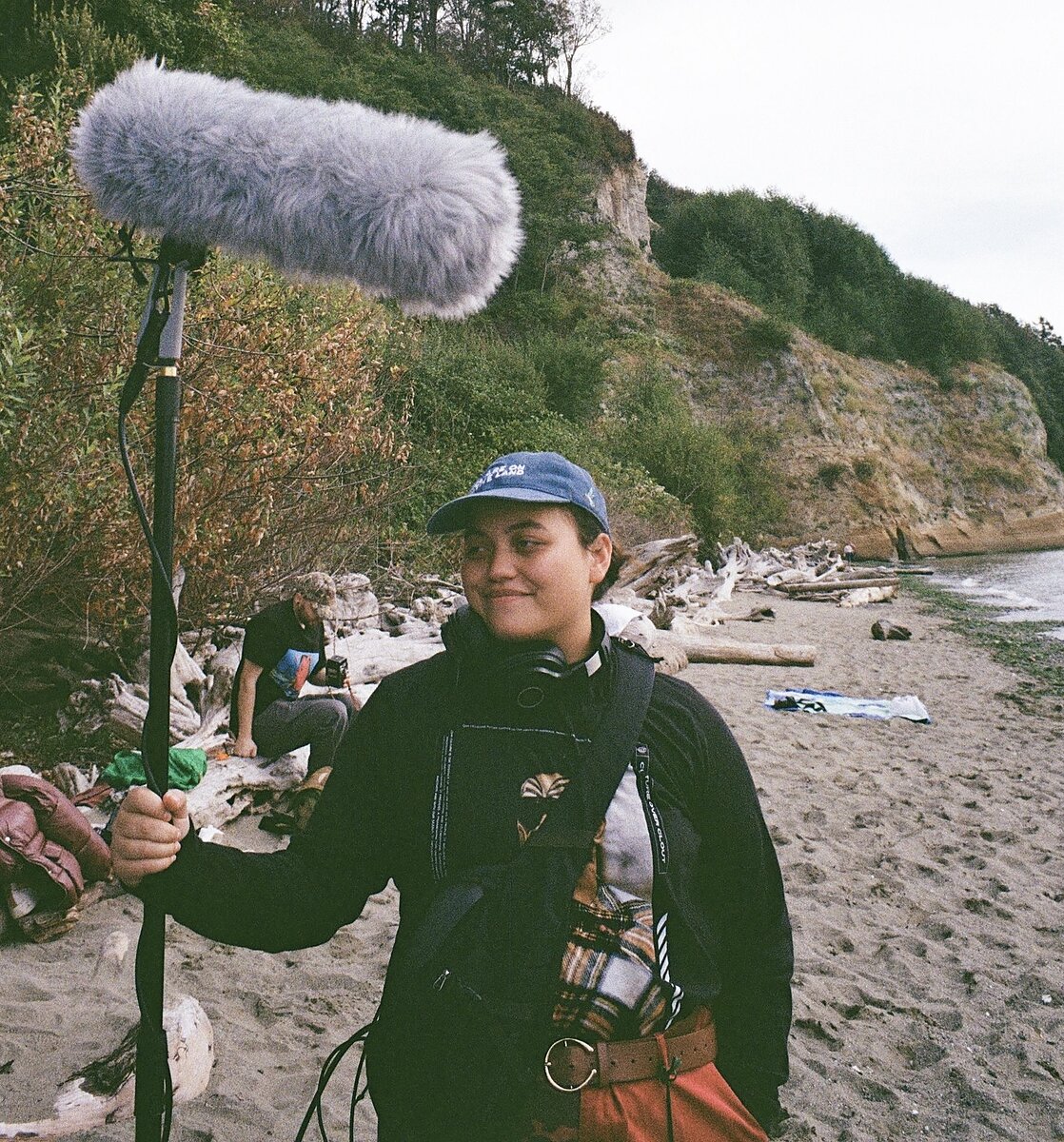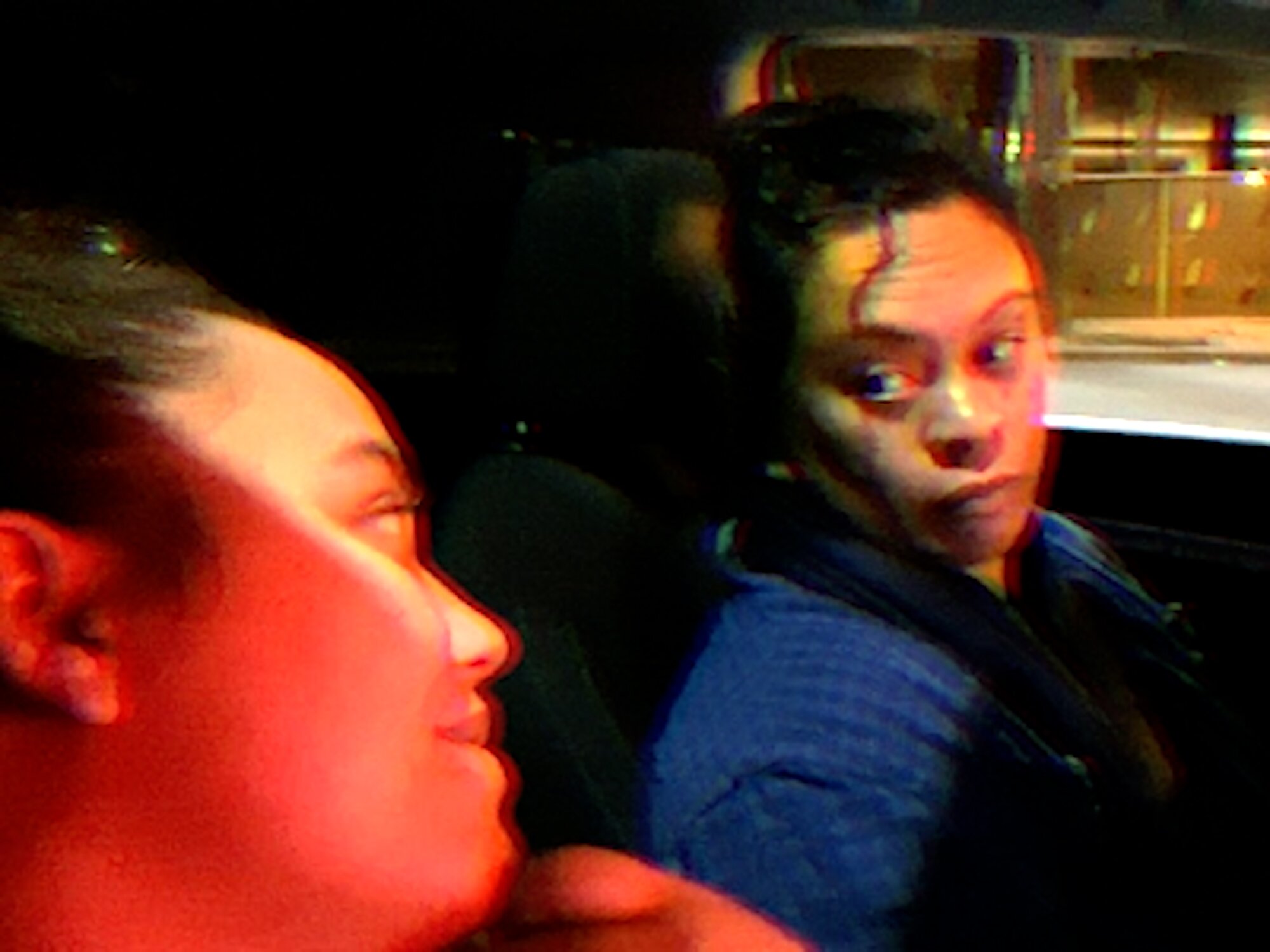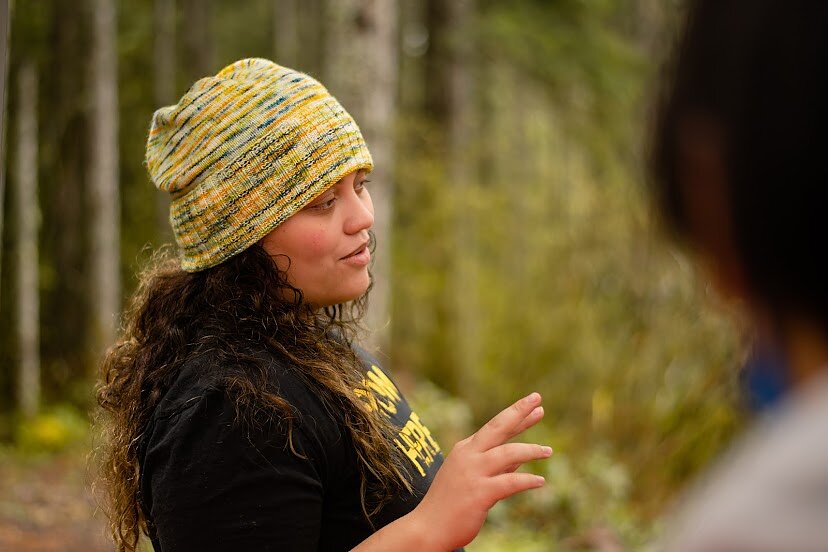AAPI FIlmmakers on the Rise: Ha’aheo Auwae-Dekker
“AAPI Filmmakers on the Rise” is a bi-monthly profile series published as a collaboration between Asian CineVision and The Amp that spotlights rising AAPI filmmakers. To launch this series, Lucas Manuel-Scheibe profiled Hawaiian filmmaker, Ha’aheo Auwae-Dekker, whose 2023 short documentary, “Malihini,” interrogates the complications of Hawaiian identity in relation to the US.
At only 24, Ha’aheo Auwae-Dekker is surefooted and committed to their values as a filmmaker. At a time when more native Hawaiians live off of Hawai'i than on it, it is with resolve that Ha’aheo declared: “I am from Hawai'i. I am from the Big Island. I am from Moku o Keawe.”
Growing up primarily in the state of Washington, Auwae-Dekker acknowledges that their story is also one of displacement. “It’s an interesting thing to navigate as a Hawaiian artist,” they said. “Although being in diaspora is an all too common experience for a lot of Kānaka (native Hawaiian), it’s still something that feels very hush-hush.”
Auwae-Dekker’s short 2023 documentary, Malihini—Hawaiian for “tourist”—laments this disconnect, asking their mother, Henrylyn, a simple yet profound question: “Do you feel like you’re an American?”
Edited from an hours-long Facetime conversation, the film asks such questions about belonging over a collage of seemingly mundane images and scenes: driving around the streets of Seattle, being together in the yard, Henrylyn performing a hula. As these images wash over each other, Henrylyn’s words imbue each frame with meaning: “I feel like a foreigner in a foreign country, on a foreign continent,” she says with great power. Malihini is about feeling like a tourist in America, about homesickness, and about not having seen Hawai'i for over 20 years.
Malihini propelled Ha’aheo’s filmmaking career, taking center stage as one of the most celebrated documentaries at the Seattle Asian American Film Festival in 2022. The following year, Malihini was screened as part of MoMA’s Doc Fortnight series, “i nā ki‘i ma mua, nā ki‘i ma hope” and Ha’aheo was asked to curate the Flaherty Film Seminar’s NYC series, “MAKA: Many Eyed Vessel.”
Though Auwae-Dekker’s rise is well-deserved, they recount feeling intimidated entering a burgeoning Hawaiian filmmaking community. “Oftentimes as someone who grew up on the continent, it’s hard not to fall into this trap of individualism,” said Auwae-Dekker, as they reflected on their time in New York City. “A big part of my artistic trajectory now is how I’m bringing my community with me; how to show up for them. My responsibility, my kuleana, is to make films that speak to my experience in a way that’s responsible but does not put me up on a pedestal. I’m speaking to my community.”
A part of the diasporic experience is finding community in places so disparate from one’s origins. Though New York City is a world away from the islands of Hawai'i, as Hawaiian communities commune across the American empire, they generate new possibilities for expression.
Auwae-Dekker’s approach to art navigates the seen and the unseen, beginning with the personal. They are always wary of the relationship between the viewer and the subject on the screen, subverting what the viewer believes they deserve to see. Such an approach refutes western cultural frameworks that have historically captured indigenous bodies and souls without reciprocity.
“When I watch documentary films, the thing that sells the film to audiences is the emotional climax of seeing the subject cry,” explained Auwae-Dekker. “For Malihini, working directly against that colonial framework of documentary filmmaking, it was important that even though I had this really beautiful, vulnerable conversation with my mother, no one should see her. When you’re working with family, you have risk—you have a responsibility to ensure that they’re safe.”
And as possibilities for Hawaiian representation expand into the past, present, and future, so does the possibility of return. “My transit to home has been making these films,” said Auwae-Dekker. “Every time I make something, I’m one step closer to figuring out my footing back home.” This connection to home through the cultural memory of body and mind is not only a hope for themselves, but a responsibility to those around them. Ha’aheo always knows who they are doing it all for.
“I think about my mom at 18, if she had stayed on the islands. I think about all the choices my mom made for me and my four siblings. The ways she showed up as my mother, and what she did to ensure our lives. I often think about, like, how am I going to ensure a future in which my mother gets back home? A future where my mother is carefree. A future where my mother’s shoulders aren’t so heavy.”
For Auwae-Dekker, to be a Hawaiian in diaspora is to question how to show up for oneself, one’s family, and one’s community, to tether oneself back to home. To be a Hawaiian filmmaker is to take on the responsibilities of representation and disruption, on and off the screen—for one’s own community as well as others. “A new part of my filmmaking journey has been how to be a responsible filmmaker in times of injustice as artists who create films and whose art has a legacy,” said Auwae-Dekker.
“Right now, we have a responsibility to show up for Palestinians and to not only show solidarity but to disrupt the system. We must not forget that art is a part of disruption and art has a history of being a part of movements that enact change. That’s what film can do for all of us.”
—Lucas Manuel-Scheibe’s first film, “Terra Natal,” won the 2024 Best New Filmmaker award and was nominated for a jury prize at the National Film Festival for Talented Youth. His second film, “Rope,” is in post-production, and he is currently shooting his third film, “Kealoha Disappears,” on location on the Big Island of Hawai’i, where his family resides. Lucas grew up in Oakland, California and holds a BFA in film production from NYU Tisch School of the Arts.


